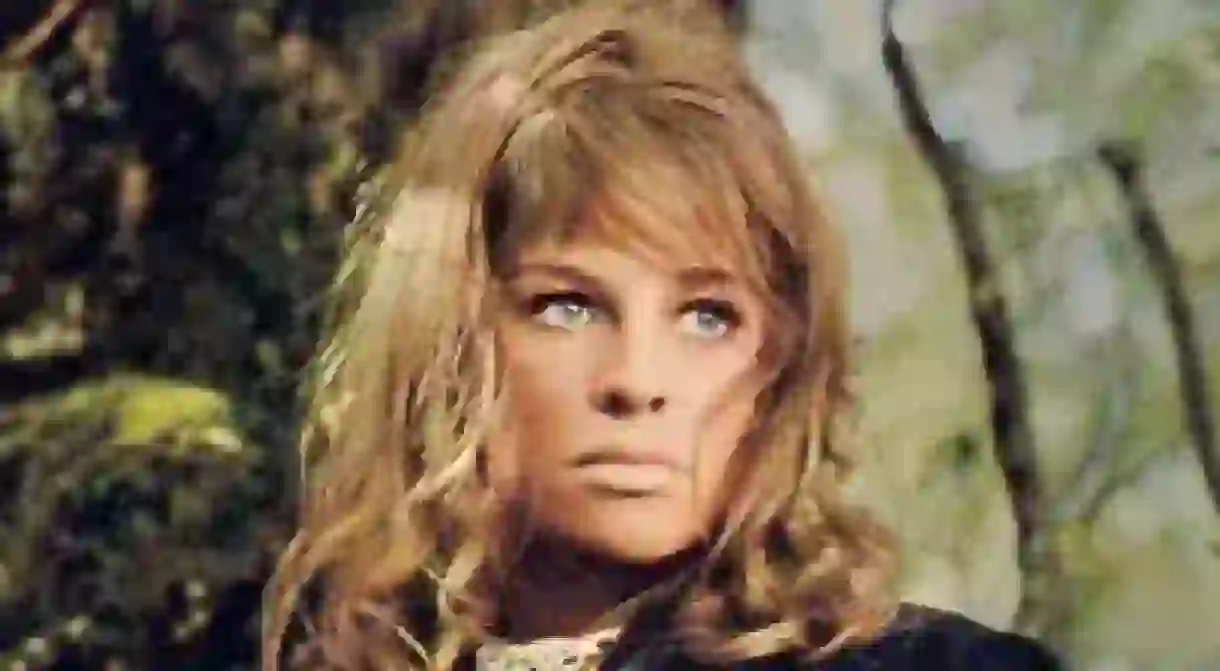Do Films Do Justice To Thomas Hardy's Novels?

The release Far From the Madding Crowd in 2015 has resulted in re-evaluations of Thomas Hardy’s works, particularly in relation to their presentation on the screen. This iconoclastic author was uniquely pessimistic in his representation of the world, yet, his novels have been popularly adapted as lavish period dramas. Discover the five adaptations that lived up to the literary originals.
Far From The Madding Crowd (1967)
This 1967 version of Thomas Hardy’s famed novel, Far From The Madding Crowd, is one of the best adaptations to date. Directed by John Schlesinger, starring Julie Christie and Alan Bates, the movie is a cinematic delight that does Hardy’s original text proud. Bathsheba Everdene, performed by the glorious Christie, encapsulates Hardy’s heroine riding high atop the cliffs. Despite oozing a little too much glamour, Christie plays the headstrong protagonist with tenacious authenticity in her battle with morals, and the important task of choosing the right suitor. Her three courters are all excellently played, Peter Finch as landowner Mr Boldwood is smouldering and vulnerable, Alan Bates as the sturdy shepherd Gabriel Oak, and Terence Stamp as the sword twirling Sergeant Troy. All three demonstrate the depth Hardy’s creates with his male characters, from emotional masochism to self destruction. The movie is a classic adaptation of a timeless text.
Jude (1996)
Jude is the 1996 adaptation of Thomas Hardy’s most famous novel, Jude The Obscure. Directed by Michael Winterbottom from a screenplay written by Hossein Amini, this version is gut-wrenchingly bleak, just like the novel. Christopher Eccleston is Jude, a freethinking scholar striving to leave his working class roots behind him, but never quite succeeding. Alongside him is Kate Winslet, who plays Jude’s cousin and lover, Sue. Both Winslet and Eccleston’s performances shine in what is a truly harrowing story. Thomas Hardy’s original novel shocked his nineteenth century audience, so much so that it was his last novel. The tragedy of Jude isn’t easy to swallow, from homelessness to poverty, to class divides and child suicide; don’t watch (or read) Jude if you want something uplifting. Despite its grim plot, however, the film itself is beautifully shot and well executed, with outstanding performance by Eccleston and Winslett. Watch at your own risk, and make sure the tissues are close by.
Far From The Madding Crowd (2015)
Next we have a more recent adaptation of Far From The Madding Crowd, the long-awaited 2015 movie starring Carey Mulligan as the striking Bathsheba Everdene. One of the film’s great advantages is Mulligan’s leading role. Her countryside roughness paired with her stunning beauty encapsulates Hardy’s Bathsheba in a way that few actresses could pull off today. There are moments, however, that are unconvincing, such as Bathsheba’s submission to Sergeant Troy — played by Tom Sturridge. It contradicts the strength we witness up to this point in Mulligan’s Bathsheba. Michael Sheen’s stunning embodiment of William Boldwood, the second suitor, on the other hand, is a highlight. The neighbouring middle-aged landowner becomes fatally besotted with Bathsheba, and Sheen emotes a delicate balance of desperation and adoration. Director Thomas Vinterberg and screenwriter David Nicholls rewrote a novel of copious detail into a movie that is just shy of two hours. There are moments where their selection of content chops up the original Hardy narrative, skippng from famous scene to famous scene, and sacrificing some of the crucial character development we experience in the novel. Nonetheless, this is a warming, if flawed, adaptation of one of Hardy’s greatest classic texts.
Tess of D’Urbervilles (2008)
The 2008 BBC mini series, Tess of D’Urbervilles, stars two of today’s most successful actors, Gemma Arterton (as Tess) and the Theory of Everything star, Eddie Redmayne (as Angel) in the adaptation of the Thomas Hardy classic. Tess’ tragic tale is brought to life for the small screen in this £4 million four-part adaptation, one that was described by The Guardian as ‘a sexually charged thriller disguised as a costume drama’. Hardy’s story of the pure country girl is a true tragedy with despair around every corner. As with many Hardy adaptations, this BBC number also falls short in terms of detail. Despite having four hours to demonstrate Hardy’s original tale, the mini-series under-performs in places and appears choppy, moving from one famous scene to the next. Tess of the D’Urbervilles is the most exhilarating reading experience, so bringing it to the screen is a difficult task for anyone; in this case, director David Blair, and screenwriter David Nicholls. This may be a classic case of ‘the book is always better than the adaptation’, but I’ll let you decide.
The Mayor of Casterbridge (2003)
Directed by David Thacker, this 2003 adaptation of Hardy’s novel The Mayor Of Casterbridge is an accurate portrayal of the epic tale of jealousy, love and regret. The novel, which some consider as the first realistic portrayal of alcoholism, is condensed into a three hour movie for TV. Despite its extraordinary length, the level of detail from the Hardy classic is still stripped back in the film, meaning the viewer is never lingering in the moment for too long. Irish actor Ciarán Hinds, in his harrowing performance of the Mayor Michael Henchard, demonstrates Hardy’s portrait of alcoholism. Juliet Aubrey plays his poor wife, Susan Henchard — who in the opening scenes gets sold with their baby daughter Elizabeth Jane for five guineas by her drunken husband. The production lacks Hardy’s profound insights into the fragility of life, yet still paints a well-fitting portrait of the novel and it’s themes.













